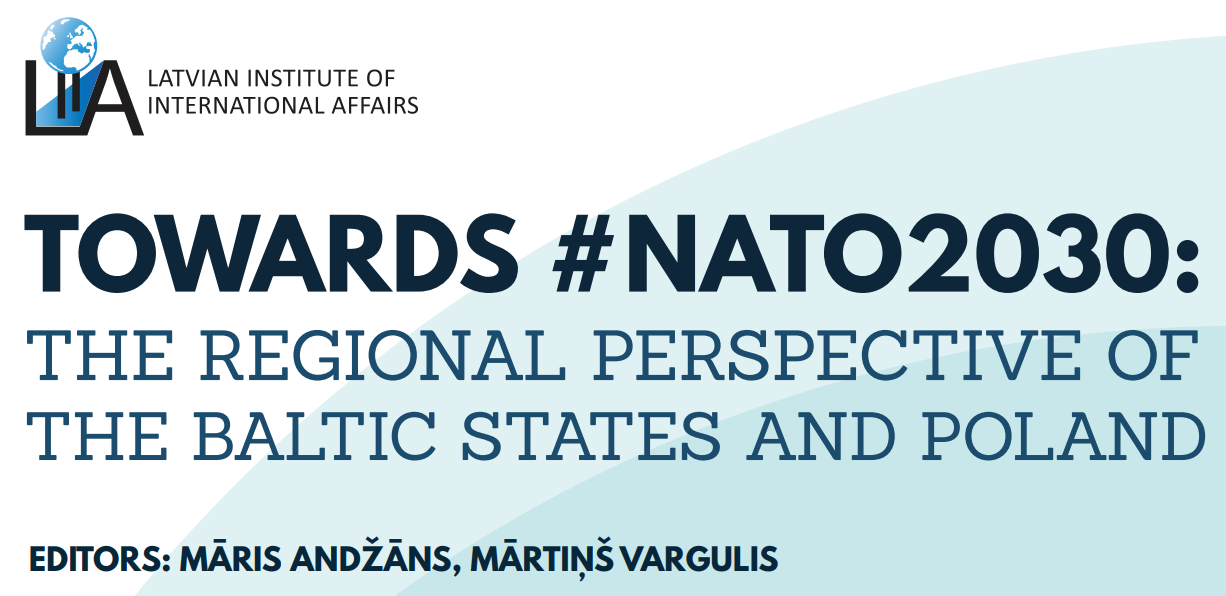This piece originally appeared as a chapter in the Latvian Institute of International Affairs’ book Towards #NATO2030: The Regional Perspective of the Baltic States and Poland.
Introduction
The Baltic region’s geography has been the single most important factor in its security vulnerability. For the Baltic States and Poland, having an adversary on their borders pushed the countries to join NATO and seek transatlantic cooperation to guarantee security. But the region’s focus on Russia has made it slower to recognise threats coming from further afield. Future threats to the region are not solely going to be determined by geography, although the traditional threats posed by Russia are not going away. The region is increasingly at risk of cyber-attacks, economic coercion, and information manipulation from China and other authoritarian countries, such as Iran and North Korea, who can apply the same playbook. When it comes to countering threats from far-flung actors, the region is behind.
As full members of NATO and the European Union, the Baltic States and Poland play an outsized role in shaping transatlantic and European security policy. This makes them prime targets for foreign interference and influence operations from authoritarian states. NATO requires unanimous support from all members to make decisions, as does the EU for foreign and security policy. Both NATO and the EU implementing defence and economic policies (including sanctions) to counter authoritarian countries far from their borders. If China, North Korea, or Iran wanted to block NATO or EU decisions or actions against them, it would require turning only one country to derail the whole process. As a result, authoritarian adversaries are keen to develop influence operations in the Baltic States and Poland. The Baltic States and Poland have developed a keen awareness of the costs of economic or technological dependence on Russia, but the risks of developing close technology and infrastructure ties with China have received less attention. Instead, in the aftermath of the 2008 economic crisis, China’s role as potential economic partner has taken precedence. Poland and the three Baltic States signed up to China’s 17+1 cooperation format in 2012, and Warsaw and Riga have hosted summits of the format.1 Only recently has their trade-oriented outlook begun to change.2 The Baltic countries and Poland’s limits on Huawei technology in 5G networks is a sign of the region’s growing awareness of new technological risks.
In learning to defuse Russia’s hybrid threats, the three Baltic States developed expertise on cyber threats, disinformation, and energy security that they have shared with the rest of the Alliance. A prime example of this is that the lessons Estonia learned from suffering cyberattacks from Russia in 2007 inspired the Alliance’s efforts in cyber security – the culmination of which was the official inclusion of cyber as a domain of operations in 2016.3
The Baltic region and NATO will need to apply their experience identifying economic, technological, and infrastructure dependencies on Russia to newer economic areas – digital technology in particular – and new threat actors in order to stay ahead of emerging threats.
Addressing new asymmetric or technological threats will require extensive cooperation within and outside of the Alliance. The security and defence sectors in Baltic States and Poland will need to build partnerships with private industry and academia, all of which will need to cooperate with each other to maintain situational awareness and a technological edge. The defence sector alone cannot protect the Baltic region, nor NATO as a whole, from new emerging threats. Resilience against new technological threats and dependencies require the region and NATO countries more generally to develop technologies of their own to counter authoritarian technological advancements.
Moreover, NATO alone cannot face down the new technological challenges posed by authoritarian adversaries. To counter the threats posed by China, for example, the Baltic States and Poland – and NATO as a whole – will need to develop much more significant partnerships with Pacific democracies, who have deep experience with China’s traditional military, economic, technological, and information space threats in their region. Strengthening diplomatic and security ties to Australia, New Zealand, Japan, South Korea, and other Asian democracies should become a priority for the Baltic region.
- Ivana Karásková, Alicja Bachulska, Ágnes Szunomár, Stefan S. Vladisavljev eds., Empty shell no more: China’s Growing Gootprint in Central and Eastern Europe, (Association for International Affairs, 2020), 16, https://chinaobservers.eu/wp-content/uploads/2020/04/CHOICE_Empty-shell-no-more.pdf.
- Kristi Raik, “17+1 Cooperation Is Turning Sour: Shared Concerns Over China Can Help Repair the Transatlantic Relationship”, 15 October 2020, International Centre for Defence and Security, https://icds.ee/en/171-cooperation-is-turning-sour-sharedconcerns-over-china-can-help-repair-the-transatlantic-relationship/.
- Laura Brent, “NATO’s Role in Cyberspace”, 19 February 2019, NATO, https://www.nato.int/docu/review/articles/2019/02/12/natos-role-in-cyberspace/index.html.





